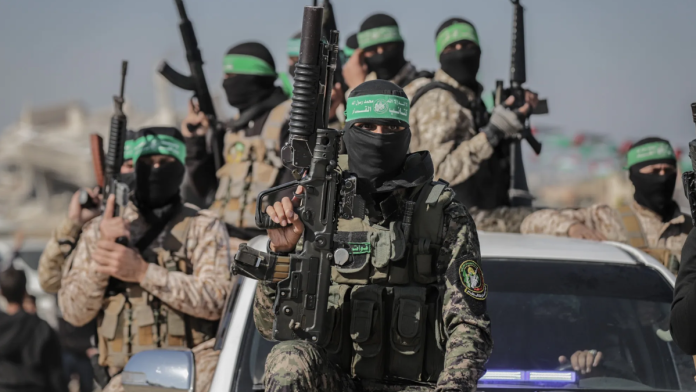The United States has stepped in to stop Israel from imposing sanctions on Hamas. This comes as the militant group continues to delay the return of deceased Israeli hostages. According to Israel’s public broadcaster Kan, Washington is actively signalling the government not to take measures that could threaten the fragile ceasefire.
Since the ceasefire started on October 10, Hamas has held the bodies of 28 Israeli hostages. So far, only 15 bodies have been returned. The government believes that Hamas has the ability to return the remaining bodies but has not done so. This delay has caused growing frustration among officials.
US officials are urging Israel to exercise patience. They warn that punitive actions, such as sanctions, could destabilize the ceasefire and worsen the situation. The United States is also pressuring mediators, including Egypt and Qatar, to ensure that Hamas fulfills its promise to return all hostages. Senior US officials have made frequent visits to Israel, underlining the importance of restraint during this delicate period.
The ceasefire relies on cooperation from both sides. The US role has been to balance Israel’s security concerns with the need to maintain peace and prevent further escalation.
Recent Hostage Returns
On October 21, Hamas returned the remains of two more Israeli hostages through the International Committee of the Red Cross. These transfers brought the total number of deceased hostages returned to 15, leaving 13 still in Gaza. The bodies returned were of residents from Kibbutz Nir Oz.
Hamas has explained that some bodies are difficult to retrieve because they are buried under rubble from conflict-affected areas. Heavy equipment is reportedly needed to access them. While initial reports suggested more bodies would be returned quickly, those promises were not fulfilled. Sources say there is still hope that additional transfers could happen soon.
Returning hostages is a central part of the ceasefire agreement. Hamas had committed to releasing all captives, including the deceased, within 72 hours of a partial Israeli withdrawal. The agreement was brokered with support from the United States, Egypt, and Qatar, and calls for Hamas to disarm as part of broader demilitarization plans for Gaza.
Tensions Over Delays
The delays in returning hostages remains have created tension. Israel is frustrated, while the US continues to press Hamas to meet its obligations. International observers, including the United Nations, have emphasized the importance of fulfilling these commitments to uphold the ceasefire and prevent further violence.
The ongoing delays are seen as a critical test of the ceasefire. Israel remains watchful, and the situation could become volatile if the remaining bodies are not returned promptly.
Shocking: US targets Russia’s top oil companies with sweeping sanctions
International Oversight and Mediation
The ceasefire is being monitored with international support. British military personnel have been deployed to Israel to assist in overseeing the ceasefire. A senior British officer and a team of planners joined the Civil Military Coordination Centre (CMCC) to help ensure that both sides follow the agreement and avoid further clashes.
Despite these efforts, tensions remain high. On October 19, two Israeli soldiers were reportedly killed in an attack attributed to militants from Gaza. Israel responded with airstrikes that resulted in the deaths of 44 Palestinians. While Hamas denied involvement in the attack, the incident highlighted the fragility of the ceasefire and how quickly violence can flare.
The United States continues to mediate between Israel and Hamas. Washington is trying to prevent further escalation while ensuring that the remaining hostages, both living and deceased, are returned. Pressure is also applied on mediators such as Egypt and Qatar to ensure that Hamas complies with its commitments.
The international community continues to closely monitor the situation to ensure both sides follow the terms of the agreement. Diplomatic efforts and international oversight remain in place to maintain peace and prevent renewed conflict.


